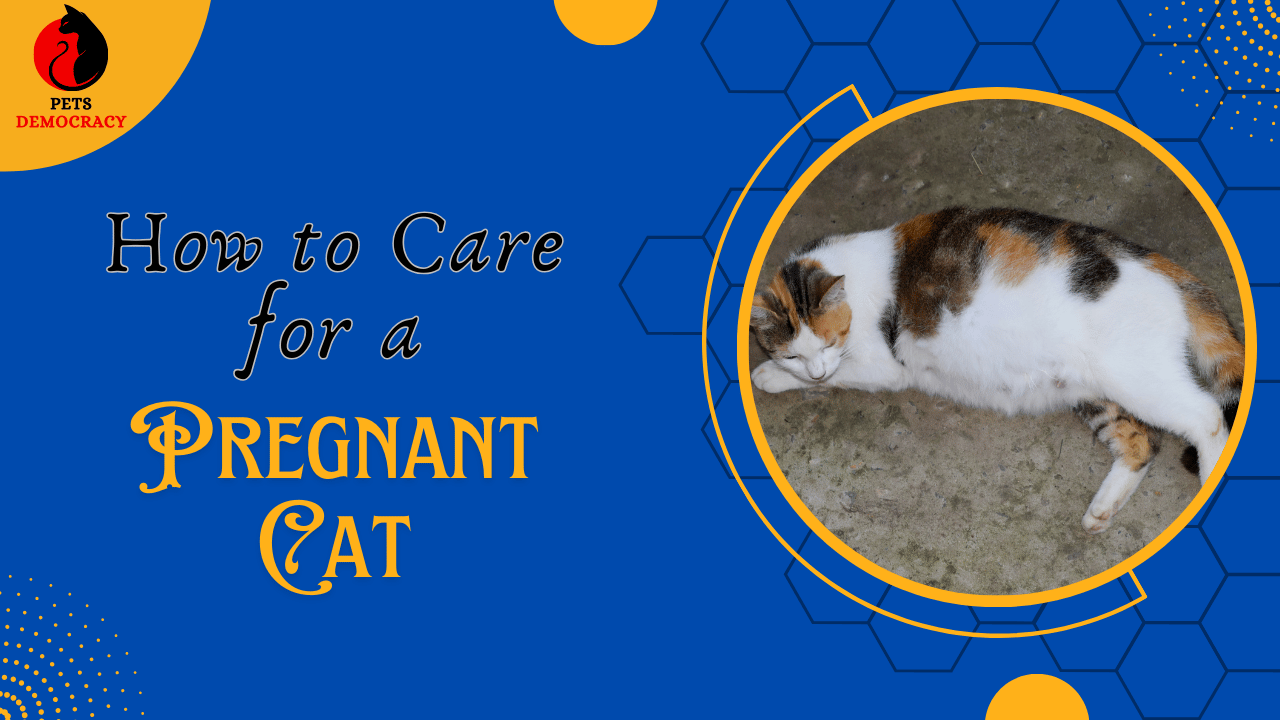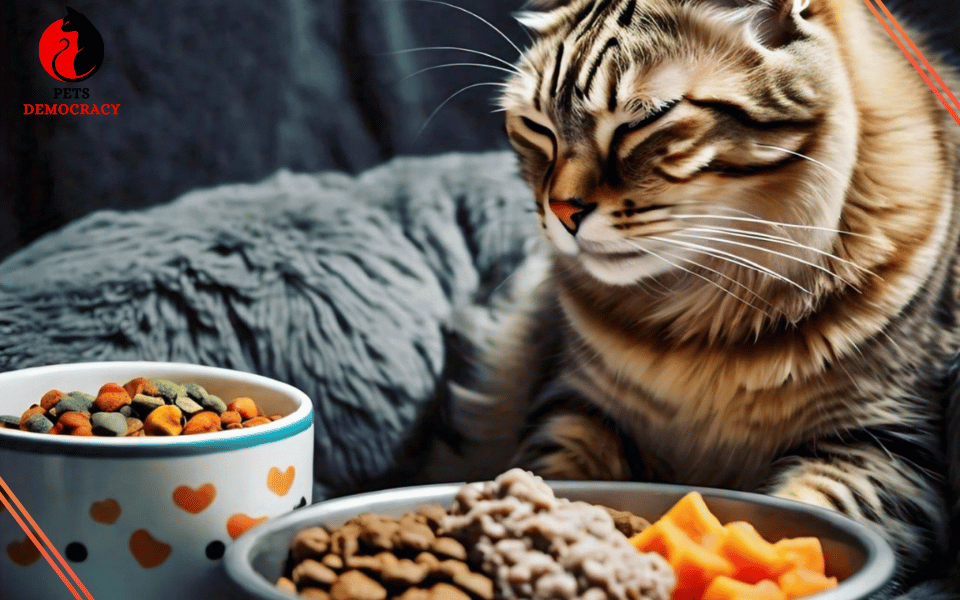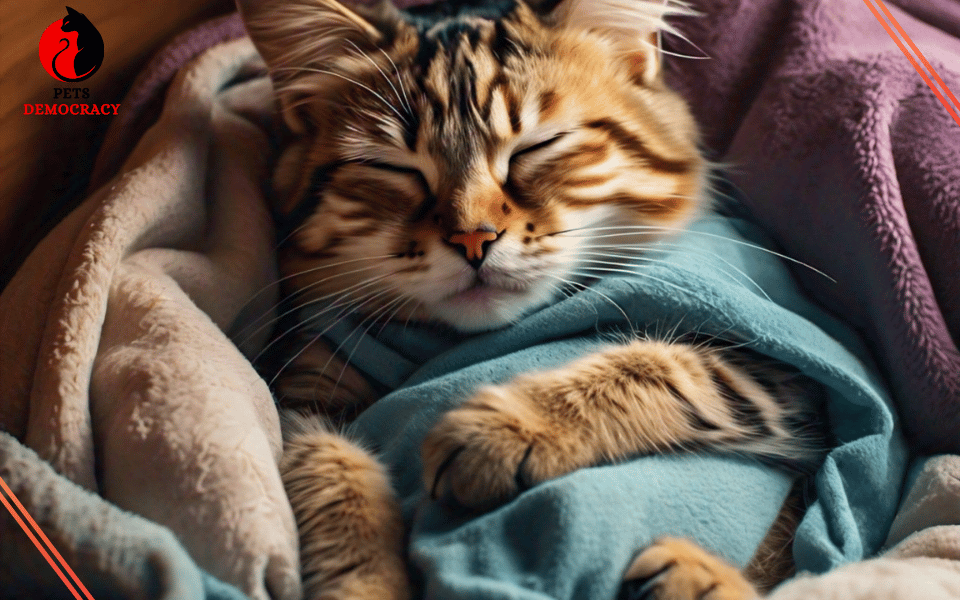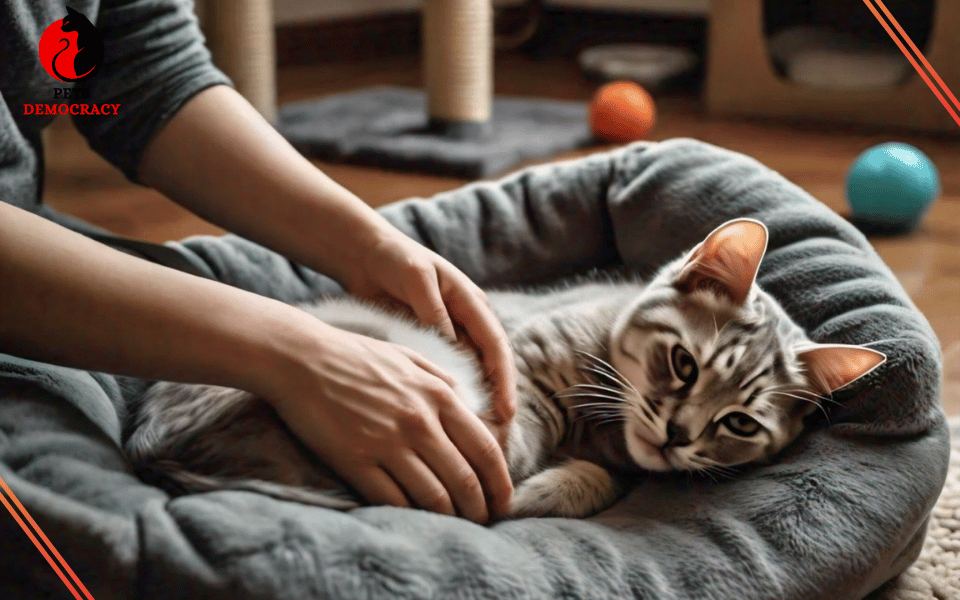
This guide provides essential tips on how to care for a pregnant cat, whether it’s your first time or you’re a seasoned cat owner.
Caring for a pregnant cat requires special attention and understanding. Ensuring your feline friend is comfortable, well-nourished, and stress-free is vital for a healthy pregnancy and successful delivery.
Understanding Feline Pregnancy
Before diving into the specifics of how to care for a pregnant cat, it’s crucial to understand the basics of feline pregnancy. A cat’s gestation period typically lasts around 63-67 days. During this time, your cat will undergo several physical and behavioral changes.
Signs of Pregnancy in Cats
Recognizing the signs of pregnancy early on can help you provide the best care for a pregnant cat. Common signs include:
- Nipple Enlargement: The cat’s nipples become more prominent and may change color.
- Increased Appetite: Pregnant cats often eat more as they need extra nutrients.
- Weight Gain: A gradual increase in weight is a typical sign of pregnancy.
- Behavioral Changes: Your cat might become more affectionate or seek out quiet areas.
How to Care for a Pregnant Cat: Diet and Nutrition

Proper nutrition is crucial when caring for a pregnant cat. A balanced diet ensures the health of both the mother and her kittens.
High-Quality Food
Feed your cat high-quality kitten food. Kitten food is rich in essential nutrients and provides the necessary calories for a pregnant cat. Ensure the food is high in protein and fat to support fetal development.
Frequent Meals
Pregnant cats need more food than usual. Offer small, frequent meals throughout the day to accommodate their increased nutritional needs and to prevent discomfort from eating large meals.
Fresh Water
Always provide fresh, clean water. Hydration is essential for your cat’s health, especially during pregnancy.
Veterinary Care for a Pregnant Cat
Regular veterinary visits are essential in the care of a pregnant cat. Your vet can monitor the cat’s health, detect any potential issues early, and provide guidance on how to care for her throughout the pregnancy.
Initial Veterinary Check-Up
Schedule an initial check-up as soon as you suspect your cat is pregnant. The vet can confirm the pregnancy and estimate the due date.
Follow-Up Visits
Regular follow-up visits help track the progress of the pregnancy. Your vet might recommend ultrasound scans to check on the kittens’ development.
Vaccinations and Medications
Discuss with your vet any vaccinations or medications your cat may need. Some vaccinations can be safely given during pregnancy, but it’s crucial to consult your vet first.
Preparing a Nesting Area for Your Pregnant Cat
A comfortable and safe nesting area is crucial when you care for a pregnant cat. Cats instinctively seek out quiet, secluded places to give birth.
Choosing the Right Spot
Select a quiet, low-traffic area in your home. A spare room or a corner in a closet can work well. Ensure the area is warm, dry, and free from drafts.
Setting Up the Nest
Provide a box or a laundry basket lined with soft blankets or towels. The edges of the box should be low enough to allow the mother to readily enter and exit, yet high enough to keep the kittens from straying.
Maintaining Cleanliness
Keep the nesting area clean and free of any potential hazards. Regularly replace the bedding to ensure it remains clean and comfortable.
Monitoring the Health of a Pregnant Cat
Keeping a close eye on your cat’s health is crucial during her pregnancy.
Weight and Body Condition
Monitor your cat’s weight and body condition throughout the pregnancy. Gradual weight gain is normal, but sudden changes may indicate a problem.
Behavior and Activity Levels
Pay attention to any changes in your cat’s behavior or activity levels. While some decrease in activity is normal, a significant drop could be a cause for concern.
Signs of Distress
Be vigilant for any signs of distress or discomfort, such as excessive vomiting, lethargy, or difficulty breathing. Give your veterinarian a call right away if you observe any of these signs.
How to Care for a Pregnant Cat: Preparing for Labor and Delivery

As the due date approaches, being prepared for labor and delivery is crucial.
Recognizing Labor Signs
Common signs that labor is imminent include restlessness, nesting behavior, decreased appetite, and increased vocalization.
Assisting with Delivery
Most cats can give birth without assistance, but being present during the process can help if any complications arise. Keep your vet’s contact information handy in case of an emergency.
Post-Delivery Care
After delivery, ensure the mother cat and her kittens are comfortable. Monitor the mother for any signs of complications, such as retained placentas or infections.
Common Issues and How to Address Them
Even with the best care for a pregnant cat, issues can sometimes arise. Knowing how to address common problems can make a significant difference.
Inadequate Nutrition
If your cat is not eating enough, try offering different types of food or warming it to make it more appealing.
Behavioral Changes
Pregnant cats may become more affectionate or irritable. Provide a calm environment and give your cat space when needed.
Health Complications
Regular vet visits can help detect and address health complications early. Be proactive in seeking veterinary care if you notice any unusual symptoms.
How to Care for a Pregnant Cat for the First Time

If it’s your first time caring for a pregnant cat, it can be a daunting experience. Here are a few more pointers to get you through the procedure.
Educate Yourself
Research and learn as much as you can about feline pregnancy and childbirth. Knowledge is your best tool in providing excellent care.
Seek Support
Don’t hesitate to seek advice from experienced cat owners or your vet. Support from others can be invaluable.
Stay Calm
Remaining calm and composed will help your cat feel safe and secure. Stress can affect her health and the health of her kittens.
Postnatal Care for Your Cat and Her Kittens
After the kittens are born, caring for both the mother and her new litter is essential.
Nutrition for the Nursing Mother
Continue feeding the mother high-quality kitten food. She will need the extra nutrients to produce milk and recover from the birthing process.
Monitoring the Kittens
Make sure the kittens are getting enough food to grow by keeping a watch on them. Consult your vet if you notice any issues with the kittens’ health or behavior.
Regular Veterinary Visits
Schedule vet visits to monitor the health of both the mother and her kittens. Vaccinations and deworming treatments are important for the kittens as they grow.
FAQs about How to Care for a Pregnant Cat
How can I tell if my cat is pregnant?
Signs of pregnancy in cats include nipple enlargement, increased appetite, weight gain, and behavioral changes such as increased affection.
What should I feed my pregnant cat?
Feed your pregnant cat high-quality kitten food, which provides the necessary nutrients and calories for both the mother and her developing kittens.
What should I do to prepare for my cat’s labor?
Create a comfortable nesting area in a quiet, low-traffic spot in your home. Be familiar with the signs of labor and have your vet’s contact information readily available.
Conclusion
How to Care for a Pregnant Cat requires dedication, attention to detail, and a lot of love.
By providing proper nutrition, a safe environment, regular veterinary care, and emotional support, you can ensure a healthy pregnancy and a successful delivery for your feline friend.
Whether it’s your first time or you have previous experience, following these guidelines will help you navigate this rewarding journey with confidence.


